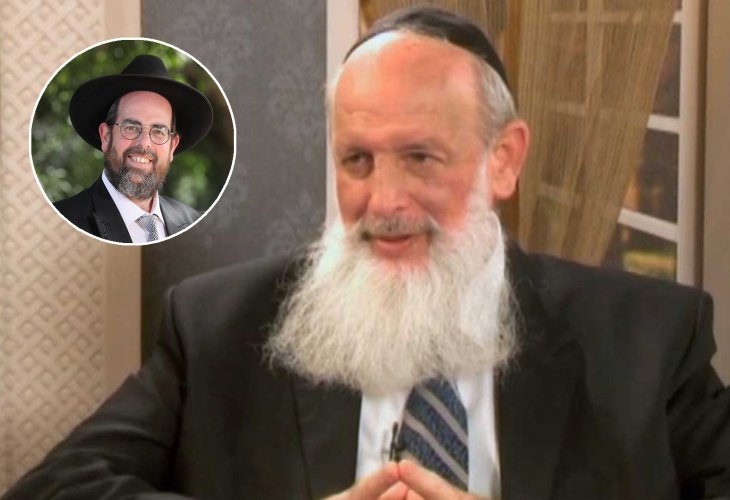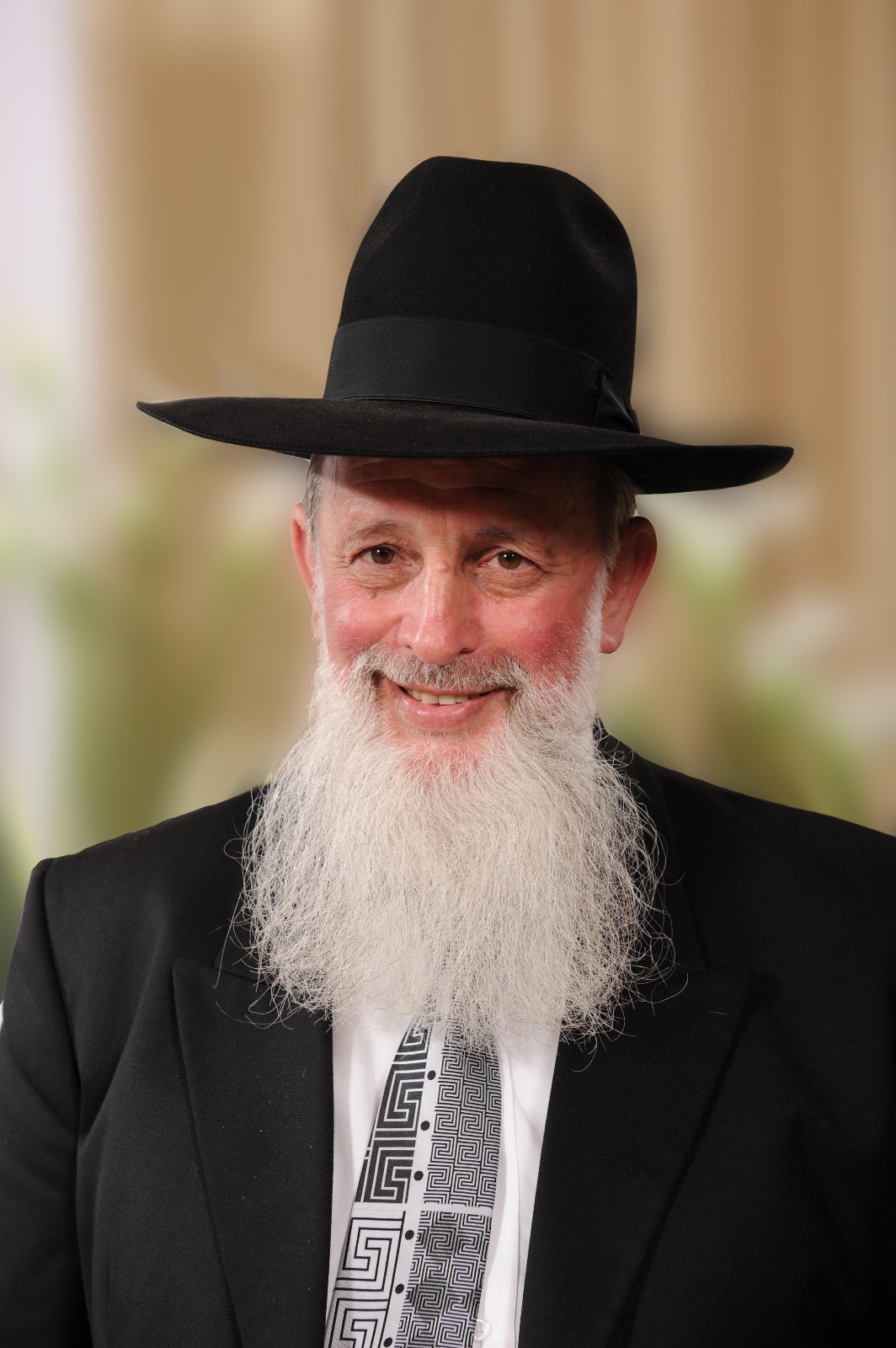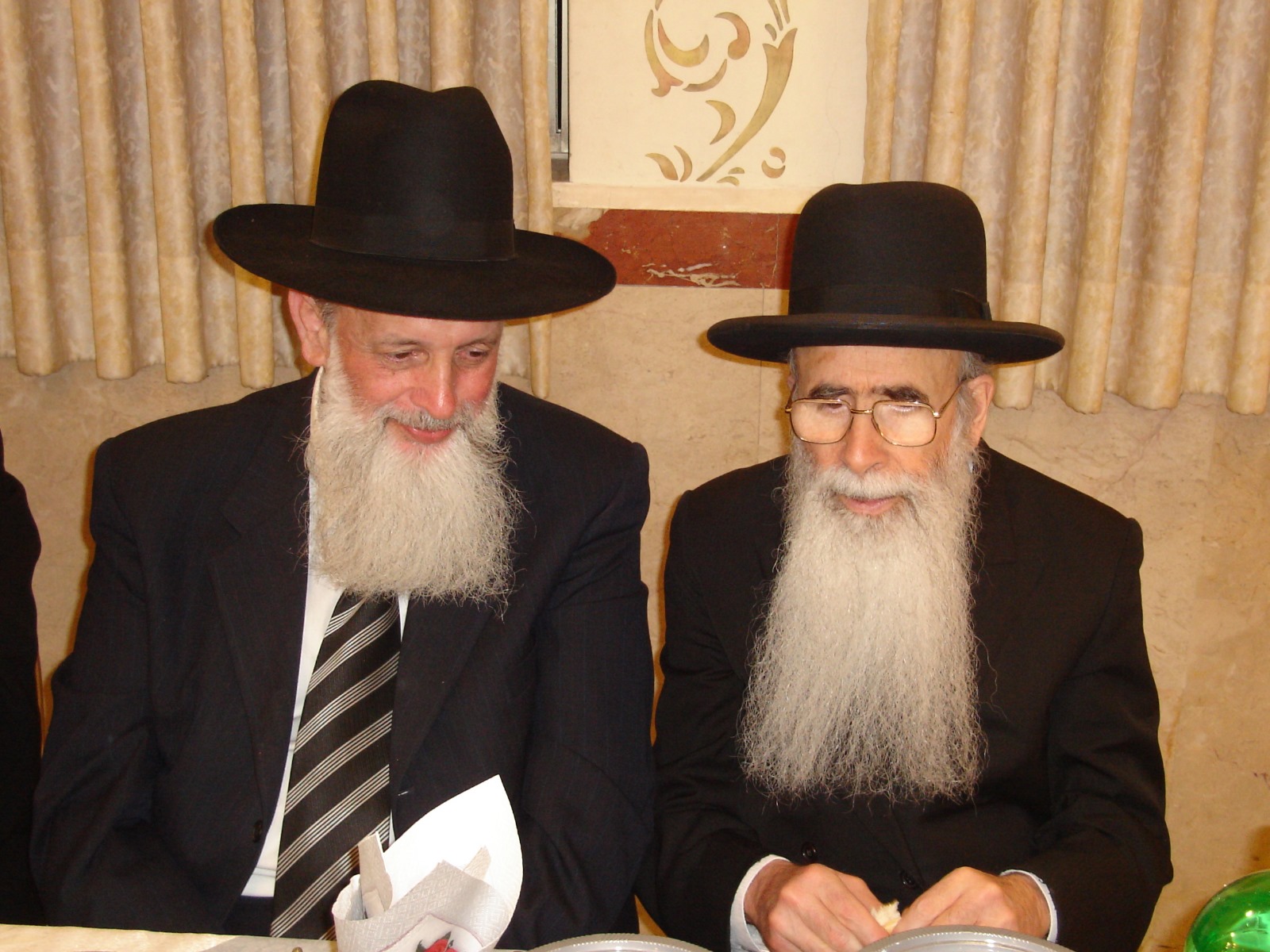Remembering Rabbi Simcha Cohen: A Year After His Passing
A year after the passing of Rabbi Simcha Cohen, his son, Rabbi Yehuda Cohen, reflects on his father's profound influence on Israel's teshuvah movement, his unexpected venture into couples counseling, and the indelible impact he left on those who knew him.
 (In the circle: Rabbi Yehuda Cohen, son of Rabbi Simcha Cohen)
(In the circle: Rabbi Yehuda Cohen, son of Rabbi Simcha Cohen)For those who are married, chances are you've come across the book "The Jewish Home." Even if you're not yet married, you might have flipped through "The Match." These books have become foundational in the Jewish world and particularly in the world of teshuvah. So what drove Rabbi Simcha Cohen to transition from giving lectures and seminars that brought countless Jews back to their faith to focusing on marital harmony? What made him leave his life's work, his 'baby,' to devote himself to couple counseling? And overall, what was the secret of this great man, who dedicated his life to the teshuvah movement?
There are many answers, but a common thread: "From a young age, my father was drawn to the world of outreach. He felt his life's mission was to bring Jewish hearts closer to their Heavenly Father. But he eventually realized that marital harmony was essential to this mission," says his son, Rabbi Yehuda Cohen.
"His Lectures Were Restoration"
In his early years of outreach, Rabbi Simcha Cohen was instrumental in Israel's teshuvah revolution. He organized seminars worldwide, conducted workshops and lectures, and became a leading figure in the teshuvah movement. Then, at the height of his successful career, he shifted focus to marital harmony, which became the main topic of his lectures and later his popular book series "The Jewish Home."
What prompted the rabbi to suddenly focus on marital harmony?
"He had a purpose," reveals Rabbi Yehuda. "His goal was to draw people closer through his lectures on marital harmony. He believed that when participants understood how couples should behave according to Torah, highlighting trust and mutual respect, it would attract them and help bring them closer to Judaism."
Perhaps he also aimed to help couples facing crises due to one's return to faith...
"Probably. His approach to marital harmony evolved from the challenges faced by couples returning to Judaism who entered crises. That's why he was often at the forefront of seminar lectures; his talks could mend broken relationships."
 Rabbi Simcha Cohen
Rabbi Simcha Cohen"Sorry Sometimes I Was Late to Class"
Earlier, you mentioned your father was drawn to outreach at a young age. How did that manifest?
"I'll give you one example," shares Rabbi Yehuda. "As a young man in yeshiva, when he heard about a Jewish boy trapped by the mission and in danger of being baptized, he entered a church himself to save the boy. It might seem extreme, but beyond that, he often talked with young people. It was ingrained in him."
When did he make his breakthrough in the teshuvah world?
"He was among the pioneers who fueled the revolution. At just thirty, he joined 'Back to the Sources - Our Fathers' Heritage,' a small movement in today’s terms. This was after the Yom Kippur War, a time of great spiritual crisis. Like today, the notion of one's own power began to crumble. They started hosting seminars, and you'd be amazed—the success rate was nearly one hundred percent. Recognizable figures participated, including high-ranking IDF officers who fought in the Yom Kippur War, some even taken captive. The success was remarkable."
The rabbi wants to emphasize that the 1970s seminars were unlike today’s: "Today, seminars have far better conditions—hotels, halls, even international flights. Back then, they were held in dormitories. I remember as a child doing a seminar in a southern institution. Conditions weren’t great, but there was such a thirst for Judaism that people flocked to them. My father told me they barely had funds, and they tried to raise just the minimal cost of renting the place and meals."
The massive success of these seminars led to the establishment of "Netivot Olam," a yeshiva for returnees to Judaism. "The first generation of Netivot Olam students were mainly seminar graduates. My father, alongside Rabbi Yosef Brook Shlit"a (head of the Jerusalem yeshiva today – H.G), set up the yeshiva to offer Jewish learning to those interested in part-time study. Who could have dreamed there'd be returnees wanting to study all day?..."
"When they founded Netivot Olam, my father taught there for a salary. Later, he stopped taking a salary and even returned all salaries he'd been paid, continuing to teach voluntarily. We have a recording of his farewell class there. In that class, he told the students: 'I must apologize if I was sometimes late to class. While I’m not bound as a paid worker because I don’t receive a salary, you waited for me, and for that, I seek your forgiveness.'"

"Do You Know How Precious This Story Was to Me?"
When I ask Rabbi Yehuda if his father wasn’t missing at home as an involved father, he pauses and replies: "You touch on a significant point. We’re talking about a time forty years ago before cellphones. My father had a small Beetle, with which he traveled to lectures all over the country, and during all those hours, we had no communication with him. But despite this, he had a special influence on us, the children. Our sages say, 'Not study but practice is the main thing.' A person can demand their children pray earnestly, but if they don't pray earnestly themselves—those demands and explanations are worthless. True, as a child, he didn’t have much time, and we barely saw him, but his powerful personality radiated throughout the home, greatly impacting us."
"I was fortunate to be with him at Shabbat gatherings of the Hidabroot organization," shares the rabbi intriguingly, "and when food was served, he’d tell mom 'Your food is special.' I'd say to him, 'Dad, but this is hotel food!' And he’d reply, 'True, but now I understand that mom’s food is special beyond compare...'"
Rabbi Yehuda recalls a particularly touching childhood story when on Pesach eve, late at night, he went with his father to discard genizah near the synagogue. "The streets were empty," he recalls, "and suddenly we see a man approaching with two pails, one full of glue and the other with printed posters. My father approached him and said, 'Is it you? I’ve been looking for you!'. The man replied, 'Me?', and my father said, 'Yes, whenever I see these posters, I think to myself—interesting who sticks them so nicely. And now, I found you.' You had to see the man’s face at that moment. They glowed in the night like midday sun."
"Afterwards, I asked him: 'Dad, why make such a big deal out of it?'. And he told me: 'Know that a Jew needs a good word. Those who deal with customers all day might get a kind word from them. But this man works at night without receiving appreciation from anyone, so he needs a good word in a greater dose.'. For me, that wasn’t just a story; it was a living parable. Do you know how valuable such a story is for a child? It’s worth more than a thousand sermons on loving others and considering what seemingly outsiders need."
"It's Hard to Talk About This Time, But It's Strengthening"
Three years ago, Rabbi Simcha Cohen fell ill. He was frequently hospitalized, largely disappearing from public sight. His son, Rabbi Yehuda, recalls those days with sadness: "His speech was impaired, and so was his body’s left side. He endured unimaginable suffering."
How did he personally cope with this time?
"He said it was a test from Hashem, and he prayed to Hashem to withstand it. It was a period filled with hospitalizations, initially due to the incident and later from an illness that developed in his bones. Doctors said they hadn’t known a person who could endure such severe suffering silently, without crying out in pain."
"Right after the incident, when my father was in Intensive Care at Tel HaShomer, he was confused. His bright, smiling face wasn’t like always. But when I brought my mother to visit and said, 'Dad, mom is here,' he smiled immediately, so she wouldn’t see him in pain. He endured his suffering in silence."
Did this period of illness and pain affect you, the family?
"Very much," the son shares with pain. "We were around him day and night, never leaving his side. My father stayed focused and sharp until his last moment, and I want to tell you that because of that awareness, he suffered greatly. He understood his complex medical condition, and since his speech was impaired—he sometimes felt misunderstood, which pained him deeply."
Is it hard to talk about this period?
.Rabbi Yehuda pauses. The last moments of his father and the profound suffering he witnessed are burdensome. "It’s hard on one hand," he says after a moment of silence, "but on the other, I see great benefit because it can provide immense strength to the Jewish people, knowing that even in my father’s most challenging moments—his faith and devotion to the Creator remained unchanged and even strengthened. Those were days when prayer did not depart from his lips."
"May I Continue His Path"
Suddenly, your father passes, and all this great activity stops. How do you handle such a significant loss?
"It’s a tough question," he sighs, "but first, my father left behind books, so his legacy is quite clear and etched for generations. Additionally, it’s said that Jacob our patriarch never died—because 'as long as his children live, he too lives.' A person consists not only of their physical self but of their character and the spirituality they build for themselves and others. This is a fundamental part of a person. Since my father also merited a distinguished family and a generation of people he brought closer to Judaism, we take some comfort in knowing so many walk in his light. They can’t even be counted. So even if he isn’t physically with us, in a sense, he remains with us.
"I have to tell you, by nature, my father wasn’t an emotional person," Rabbi Yehuda surprisingly shares near the end. "But he connected to the person in front of him fully. He would even cry with people seeking his counsel. I also do counseling and give lectures, but his total connection to every individual is something I can only aspire to. May I merit to continue his path and spread his light."

